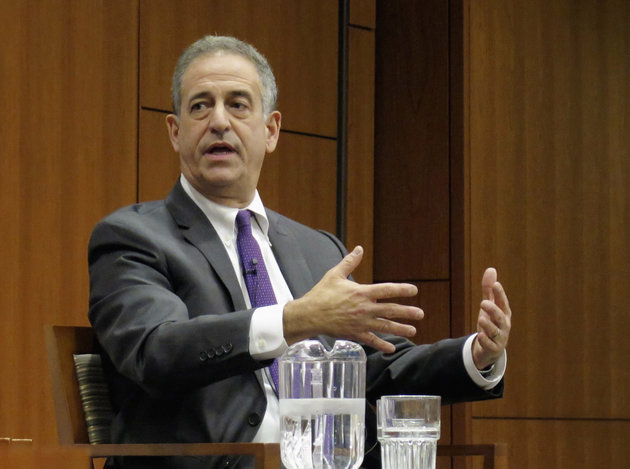
Former Wisconsin Senator Russ Feingold (D) is ahead in a race to take back his old Senate seat. He has emphasized his support for Social Security expansion.
If Donald Trump’s unpopularity is not enough to sweep them into office, Democrats in key Senate races are hoping Social Security expansion will do the trick.
Nine Democratic Senate candidates are campaigning on their support for increasing Social Security benefits: Sen. Michael Bennet in Colorado; Sen. Patty Murray in Washington; Kamala Harris in California; Russ Feingold in Wisconsin; Rep. Tammy Duckworth in Illinois; Ted Strickland in Ohio; Ann Kirkpatrick in Arizona; Deborah Ross in North Carolina; and Patty Judge in Iowa.
The widespread use of Social Security expansion as a campaign talking point in close Senate contests reflects the degree to which the politics of Social Security have changed in recent years.
Even if Democrats’ evolution on Social Security fails to win them control of the Senate, it is all but certain to achieve another progressive priority: ruling out a bipartisan budget deal to cut the program in the next Congress.
All of the candidates have been on the record about their views on the popular social insurance program. But the Progressive Change Campaign Committee, an online liberal group, solicited new statements from the candidates about why they back Social Security expansion and publicized them in a press release on Thursday.
“Years of progressive activism led to this moment,” PCCC co-founder Stephanie Taylor said in a statement touting the news. “With Hillary Clinton and Senate candidates campaigning on the expansion of Social Security benefits to keep up with the rising costs faced by our seniors, it’s clear that the center of gravity has shifted in the Democratic Party in a more populist direction.”
Some of the Democratic candidates campaigning on Social Security expansion ― like Judge and Kirkpatrick ― still face long odds in their battles to unseat Republican incumbents. Others in the cohort ― such as Harris and Bennet ― appear almost guaranteed to win.
But for candidates like Ross in North Carolina, who is trailing Burr by just 2 percentage points, according to HuffPost Pollster, an issue like Social Security could make a difference.
And victories in just a handful of Senate contests could restore Democrats’ control of the upper chamber. As of late August, Democrats had a 55 percent chance of retaking the Senate come November, according to a HuffPost Pollster analysis.
It is not hard to see why Democrats are at least partly pinning their hopes on Social Security. Unlike means-tested social programs often derided as handouts to undeserving people, Social Security enjoys strong support among Republicans as well as Democrats.
More than two-thirds of Republicans at least oppose cutting Social Security’s benefits, according to a Pew poll released in March.
Until recently, however, Democrats were more concerned that opposing Social Security cuts would make them seem like they were soft on debt. For many years, President Barack Obama doggedly sought a so-called Grand Bargain with Republicans that would have cut Social Security in exchange for revenue hikes.
But an improving economy, which reduced deficits, and persistent progressive activism that framed Social Security benefits as inadequate for an impending retirement income crisis, led to a tidal change in the party’s view of the program.
Social Security will not be able to pay out all of its promised benefits by 2034 if nothing is done to address its long-term funding gap. Progressives support closing the gap through revenue increases, which they argue can also finance some benefit increases.
Conservatives favor closing the funding gap primarily through gradual benefit cuts.
Democratic presidential nominee Hillary Clinton promised not to cut Social Security in February, saying instead that she supports expanding it. (Obama followed suit, embracing benefits expansion in a June speech.)


